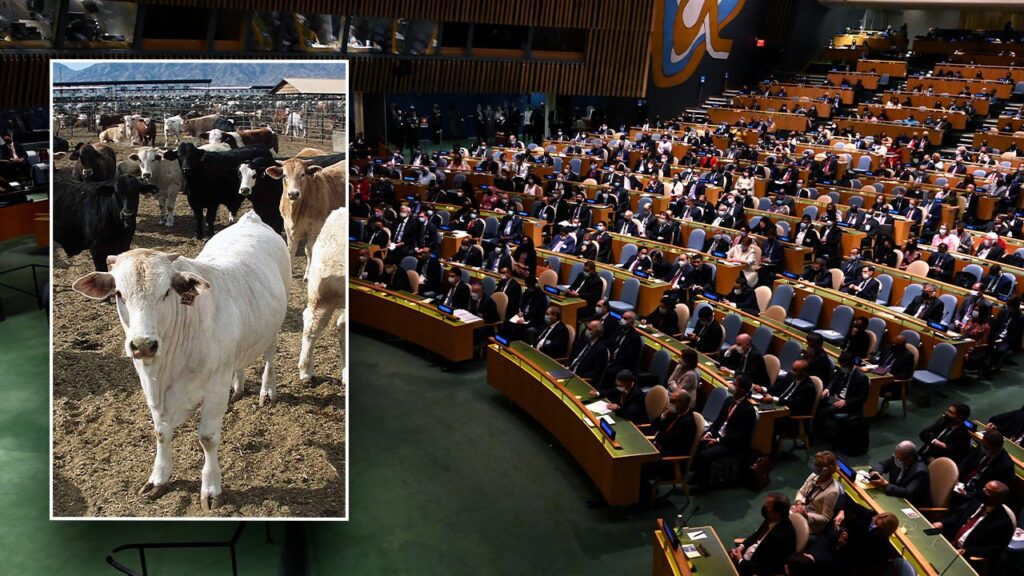The United Nations, in its latest overreach on climate change, is expected to call for Western nations, including the United States, to cut back on meat consumption. This recommendation, part of a global food directive set to be unveiled at the upcoming COP28 Climate Change Conference in Dubai, marks an alarming trend of international organizations dictating lifestyle changes to sovereign nations.
— GOP (@GOP) November 28, 2023
Bloomberg reports that this initiative aims to target developed countries, urging them to rein in their meat consumption to reduce greenhouse emissions. Additionally, it proposes changes for farmers to adapt to unpredictable weather patterns and recommends reductions in emissions from food waste, post-harvest loss, and fertilizer use.
Jeremy Coller of the FAIRR Initiative highlighted the substantial emissions from the food and agriculture sector, emphasizing the need for policy focus in this area. He noted that food system emissions constitute a significant portion of global greenhouse gases, including methane.
However, the reality is that the U.S. agriculture industry contributes a mere 1.4% to global emissions and only 10% of the nation’s total greenhouse gases, as reported by the Daily Mail. Contrary to the UN’s advocacy for plant-based diets, studies suggest that vegetarianism or lab-grown meat may not significantly impact global emissions. A University of California, Davis study reported by the Daily Mail found that lab-grown meat could be far more harmful to the climate than natural beef.
House Agriculture Committee Chairman Glenn Thompson (R-PA) criticized the move, arguing that overregulating American agriculture would shift production to countries with worse emissions profiles, harming global food security and affordability. He asserted the need for American farmers and ranchers, labeling them as “climate heroes” for their role in reducing emissions while ensuring a steady supply of food, fiber, and fuel.
The American Farm Bureau Federation pointed out that farmers and ranchers have become increasingly efficient, producing much more with less compared to 70 years ago. They also noted a continuous decrease in livestock emissions, including from pork, milk, and beef production. This scenario highlights the disconnect between the UN’s recommendations and the reality of American agriculture’s role in climate change.


